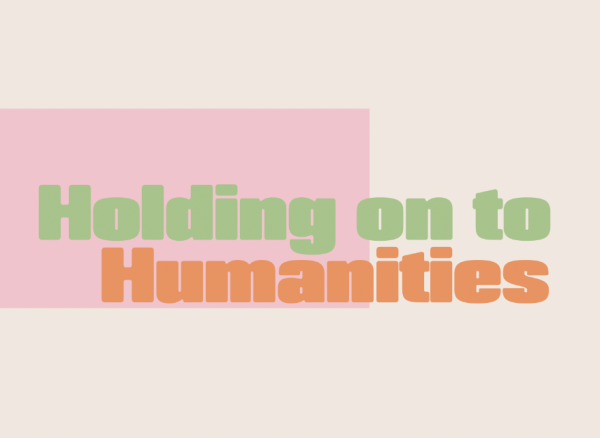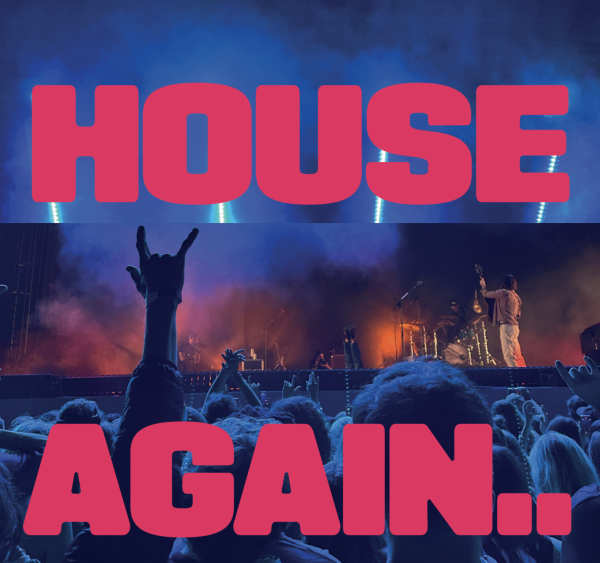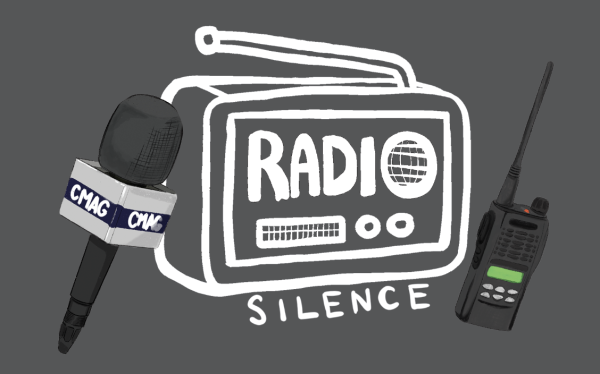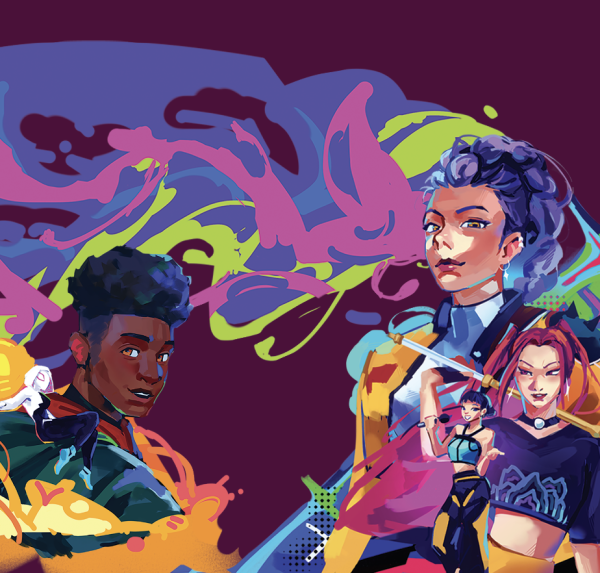Punch Line Politics
Every night, millions tune into late night television to watch their favorite comedians deliver satirical perspectives on the political world. C Magazine investigates the bigger impact that this genre of entertainment has on the American public.
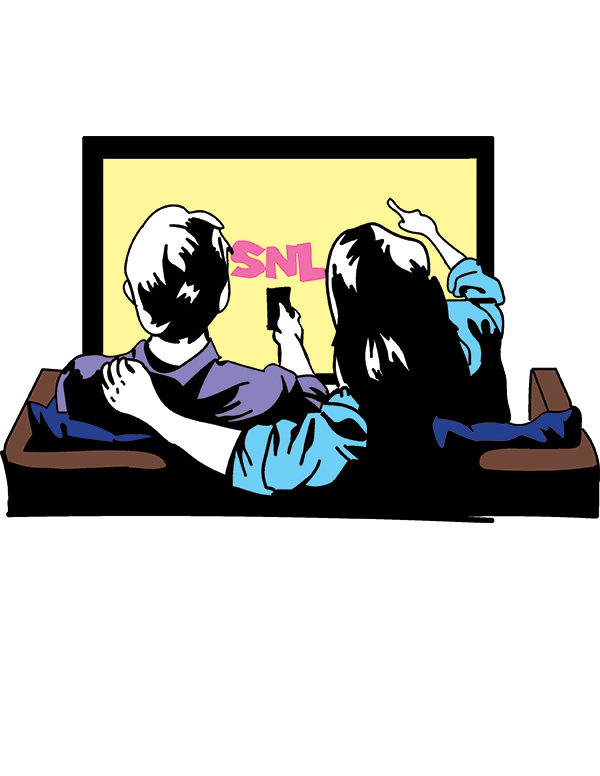
Art by Charlotte Amsbaugh
The TV screen cuts to the suspenseful courtroom of the Kavanaugh hearing, but something is different. Gone are the faces of U.S. senators, and in place of them are those of familiar comedians, attempting to remain impassive. Suddenly, Matt Damon appears, concurrent with laughter, gasps and applauds from the live audience. Damon is the spitting image of Brett Kavanaugh. Throughout the sketch, the comedians reenact the more animated parts of the real hearing, which serves as a highlight reel of the contentiousness that occurs in modern politics. It concludes with Damon chugging an entire beer, looking straight into the camera and enthusiastically shouting “Live from New York, it’s ‘Saturday Night’!”
“Saturday Night Live” is an award-winning American television show that features an ensemble of talented comedians and a new celebrity host each episode, who all act in comedy sketches, satirical news segments and musical performances. Running for over four decades, the show doesn’t merely reflect on American culture, it churns at the center of it. However nonsensical “SNL” gets, there is always a depth to its farce, as it represents a profundity found throughout the history of American satire. More specifically, it highlights a form of satire that goes beyond the sets and stages of “SNL,” into a widespread genre of modern entertainment: comedic content that not only comments on publicized social and government endeavors, but also impacts the American public enough to become essential to our country’s political climate.
The humorous examinations of current events brought-forth by “SNL” also serve as the main attraction of a larger genre that the show is part of: late night talk shows. This genre includes programs hosted by sharp and witty comedians such as “The Late Show with Stephen Colbert,” “Last Week Tonight with John Oliver” and “The Daily Show with Trevor Noah.” “The Daily Show,” originally hosted by Jon Stewart, arguably launched the modern talk show movement itself, making Stewart one of the most influential comedians in American politics. In an interview with Bill Moyers for “PBS,” Stewart commented on the increasing influence that the rising genre— and the comedians that promote it— have on society. “I think, honestly, [comedians] are practicing a new form of desperation, because [the public] is so inundated with mixed messages from the media and from politicians that we’re just trying to sort it out for ourselves,” he said. Since the world of politics is difficult to comprehend by itself, Stewart and other comedians present important issues in a satirical sense with the intention to make the information more accessible and comprehendible. Led by Stewart, “The Daily Show” allowed for the initiation of a new form of television-based entertainment, one that presented political and social ideas in a comedic manner.
The comedic content distributed via late night talk shows is generally based on the evaluation of current events in the media, as well as the political climate. This has led younger generations to see these satirical shows as a higher-quality source of insight into the world of politics, more so than traditional news outlets.
Silvia Knobloch-Westerwick, a professor of communications at Ohio State University, conducted a study regarding the plausible concept that satirical news can have a serious impact on its viewers. Published by Phys.org, the study concluded that satirical news tends to reinforce political attitudes— both liberal and conservative— to the same extent as other “serious” news networks. “These results suggest that satirical news can engage people who otherwise would avoid political news,” said Knobloch-Westerwick.
Political satire not only invites diversity into the political audience of this day and age, it is also a critical function of a democratic society in the notion that it addresses “taboo” news in a comprehensible way. This viewpoint brings an intriguing concept into question: is it possible that Americans thrive off of hearing and viewing their country’s crisis and mayhems as the punch line of a joke? According to Sophia McClennen, a professor of comparative literature at Penn State, the answer is yes. In an interview with U.S. News, McClennen suggests that satire is an essential component of American culture. “Robust satire is often a sign of crisis and the ability to share and consume it is a sign of a free society,” McClennen says. “We see satire emerge when political discourse is in crisis and when it becomes important to use satirical comedy to put political pressure on misinformation, folly and the abuse of power.”
In today’s world of political discourse, comedic political commentary can be viewed as essential to the clockwork of the nation. Through satirical news distributors such as “Saturday Night Live” and Jon Stewart, comedic journalism allows political movements and concepts to become more accessible to a public that is increasingly alienated from politics. Above all, it serves to make sense of the madness exemplified in the world’s current climate, and perhaps laugh along in their living rooms.

Paly Junior, Raj Sodhi, joined the publication because he was attracted to the design and subject matter of the articles. He loves the committee of C...




